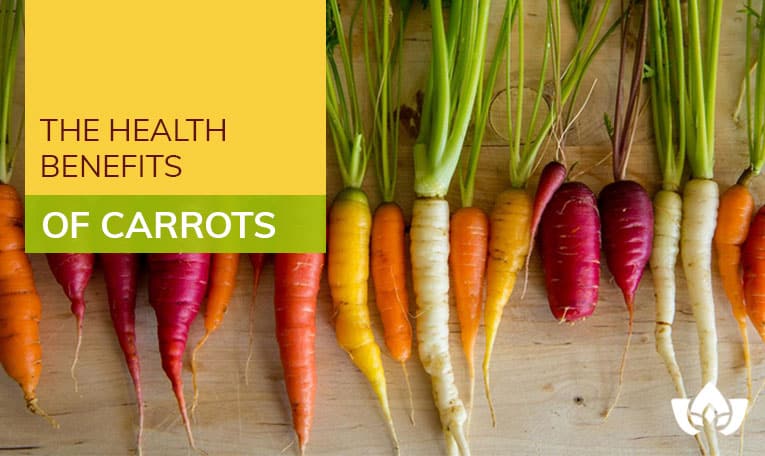
When it comes to healthy meal planning there is a lot of conflicting information available.
Should you go vegan, or pivot in the opposite direction with keto?
Is paleo for you, or will you visit South Beach?
Or perhaps you just want to eat sensibly, in a way which makes sense for you.
Today we will have a closer look at a vegetable that is good for you, jam-packed full of nutrients, with a wide array of health benefits.
What’s more, it’s welcome in just about any healthy diet you can imagine.
Keep reading to learn more about the mighty carrot.
Why Are Carrots Different Colours?
Picture a carrot.
It’s probably orange.
Maybe it’s in the hand of a certain cartoon rabbit.
But there’s a lot more to carrot than the orange variety popularized by Bugs Bunny.
I’m Dr. Maria Cavallazzi, ND, a naturopathic doctor in Streetsville Mississauga and I’m going to help demystify some of the different types of carrots for you.
Let’s start by looking at why carrots come in a whole rainbow of colours.
Red, orange, yellow, magenta, purple, and even white.
And each colour of the carrot comes with different benefits.
Orange carrots are high in beta-carotene, purple carrots are high in anthocyanin, a type of flavonoid, and could be orange, red, or white on the inside.
What’s The Deal With Baby Carrots?
When you want a healthy snack between meals, sometimes you might reach for “baby carrots”.
But what exactly are these bite-sized snacks?
They can refer to each whole carrots which are harvest before they are fully grown, but more often they’re fully grown carrots that are machine-cut, polished, and peeled into the easy-to-eat snack you’re familiar with.
Because they start from the same source as fully-grown carrots, baby carrots have the same nutrient profile as their larger counterparts and carry with them the same health benefits.
Health Benefits Of Carrots
Whether as part of your dinner, or a quick snack in between meals, carrots are jam-packed full of health benefits.
Let’s take a look at some of the reasons you’ll want to add more to your diet.

1. They’re Nutrient Dense
Carrots are packed full of important vitamins and minerals your body needs.
These nutrients include:
● Vitamin A
● Vitamin C
● Vitamin K
● Vitamin B6
● Vitamin B7
● Potassium
2. They’re Good For Your Eyes (No, Really)
You may have heard rumours carrots can help improve your eyesight.
But is there any truth to this, or is it just an old wives’ tale?
As it turns out, they might just be something to this claim.
A 2013 study in the Archives of Biochemistry and Biophysics notes carrots have an extremely high vitamin A content, which is important for eye health.
People with low vitamin A levels experience night blindness more often than those with higher levels.
Additionally, beta-carotene protects your eyes from the sun, and reduces your odds of developing cataracts.
3. They’re Good For Your Heart
Cardiovascular disease is the second leading cause of death in Canada, so if you can take simple measures to protect your heart, why wouldn’t you?
As it turns out, eating carrots is one way you can do this.
A study in the European Journal of Nutrition found eating carrots reduced cholesterol and triglyceride levels in rats.
It also increased antioxidant levels which are also linked to heart-health.
4. They’re Good For Your Immune System
Carrots are a source of vitamin C, which is known for its immune-boosting properties.
It is used by the body to produce collagen which is important for wound healing, and the function of immune cells.
Vitamin C consumed when the immune system is under stress .
5. They’re Low On The Glycemic Index
Carrots are a sweet vegetable, however, they are relatively low in sugar overall.
Because they are low on the glycemic index (GI), carrots won’t cause a blood sugar spike.
This means they are safe for people with either type 1 diabetesor type 2 diabetes, and other concerns regarding blood sugar levels.
6. They Can Help With Digestive Issues
Carrots contain both soluble and insoluble fibre.
Soluble fibres feed the good bacteria in your gut, which is important to keep your gut healthy.
Insoluble fibres such as cellulose and lignin help combat constipation and promote regularity.
7. They Can Reduce Your Risk Of Cancer
Some of the compounds found in carrots may be linked to a reduced risk of cancer.
Cancer risk is increased by an abundance of free radicals in the body, and this can be counteracted by antioxidants.
Carrots are high in carotenoids, such as beta carotene, as well as vitamins A and C which are both antioxidants.
Specific links have been found showing a relationship between carrots or carrot juice and lower risks of prostate cancer, leukemia, and lung cancer.
8. They Can Help You Lose Weight
Carrots are a low calorie, and high fibre food, it makes sense carrots would be beneficial for weight loss.
A study in the British Journal of Nutrition found subjects who ate carrots with a meal felt increased feelings of satiety and ate fewer calories for the remainder of the day.
Book An Appointment At The Mindful Healing Clinic
Do you worry your diet may be lacking?
Despite trying to eat well and balanced meals, do you feel sluggish throughout the day, and wonder if it might be because you aren’t getting enough of a particular vitamin?
Here at the Mindful Healing Clinic, we want to help.
I’m Dr. Maria Cavallazzi, N.D., and I offer nutritional guidance which can help you fill any gaps in your diet, and get you feeling your best again.
Contact me today to set up a consultation, and let me show you how naturopathic medicine can help you.
Until next time,
Dr. Maria Cavallazzi, N.D
Mindful Healing Naturopathic Clinic
Mississauga, ON L5M 1L7
(905) 819-8200
► https://g.page/MindfulClinicNaturopathic
Dr. Maria Cavallazzi is a medical doctor from Colombia where she practiced as a family physician for 8 years until she moved to Canada 16 years ago and became a naturopathic doctor in Mississauga.


